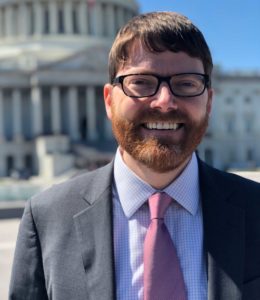
Think tank suggests phasing out or reducing loans for programs with bad debt-to-income ratios
More than 50 low-performing Texas public college programs were highlighted in a September report from the Texas Public Policy Foundation, a conservative think tank.
The report, “Holding Texas Colleges Accountable for Student Loan Debt and Earning Outcomes: 2022,” aimed to expose programs that leave students with the greatest amount of debt in proportion to their future earnings.
Using data from the U.S. Department of Education, the Texas Public Policy Foundation submitted programs at all Texas public universities to a debt-to-earnings test and identified 58 low-performing programs. The review measured median student loan debt and median earnings three years after graduation.
Psychology, student counseling services, music, law and dentistry programs at Texas public universities have the most low-performing programs in terms of debt to earnings ratio, according to the report.
The study “uses new data on student loan debt and early career earnings of recent college graduates to identify programs at public Texas universities that leave their students with excessive student loan debt,” the research team stated. The report recommended improving or phasing out these programs and ultimately calls for policymakers to hold them accountable by limiting student loans to fund them.
 Andrew Gillen, a senior policy analyst at the Texas Public Policy Foundation and author of the report, wrote in an email to The College Fix that other metrics, such as student satisfaction and a well-rounded education, are important considerations when deciding on a major.
Andrew Gillen, a senior policy analyst at the Texas Public Policy Foundation and author of the report, wrote in an email to The College Fix that other metrics, such as student satisfaction and a well-rounded education, are important considerations when deciding on a major.
However, these factors are “very difficult if not impossible to measure,” and it is “very subjective whether a particular student thinks they are ‘worth it,'” the Johns Hopkins professor stated. Post-graduation salary in relation to debt is the most quantifiable metric to determine student success, he said.
Gillen (pictured) also told The Fix that colleges “can have a lot of discretion to lower tuition if they want to,” however, “the problem is they rarely want to.”
While the majority of the programs at Texas public universities provide their students with an affordable education and a gateway to career opportunities, several programs leave graduates with debt that outweighs their post-graduation earnings, the researchers found.
Program level debt-to-earnings data help Texas families make prudent decisions, according to report
“At any given college, some programs prepare students for life after college better than others,” the study stated. “Responsible colleges will seek opportunities to expand these successful programs and phase out programs that fail to prepare students for success.”
This data allows Texas students and parents to choose programs wisely from within a school, rather than simply relying on the school’s reputation generally.
“Students should be wary about enrolling in these programs, colleges should improve or phase out these programs, and policymakers should hold these programs accountable,” according to the study.
Limiting loans for underperforming programs could reduce student debt problem
Eliminating some underperforming programs or cutting off loan access to the worst offenders could help families avoid bad investments, the study found.
“Right now, there are a lot of people struggling with debt that graduated from these underperforming programs, but rather than address the source of the problem (programs that are too expensive relative to what students can earn after graduating) we keep lending new students money to make the same financial mistakes,” according to Gillen.
“If these recommendations … are followed,” Gillen wrote to The Fix, “then there wouldn’t be much need for forgiveness.”
MORE: Student debt is not the problem. The higher education cartel is.
IMAGE: house.texas.gov
Like The College Fix on Facebook / Follow us on Twitter






Please join the conversation about our stories on Facebook, Twitter, Instagram, Reddit, MeWe, Rumble, Gab, Minds and Gettr.